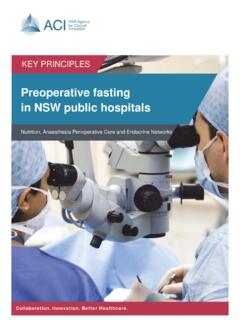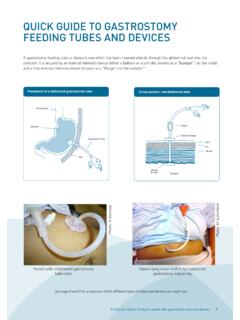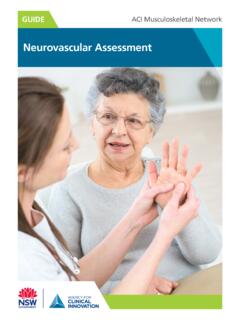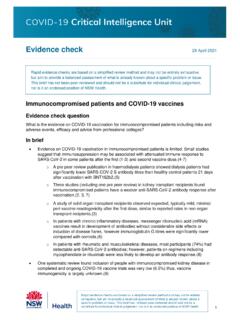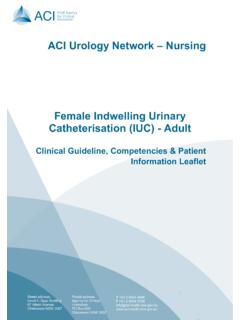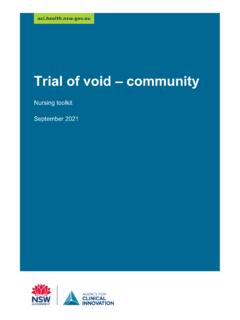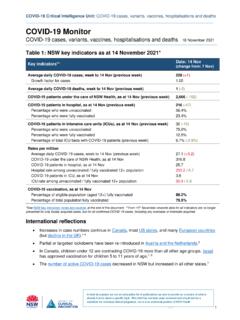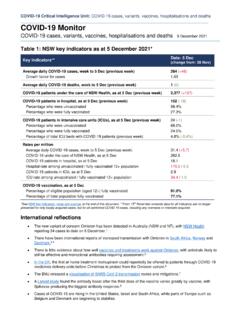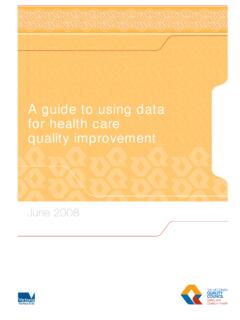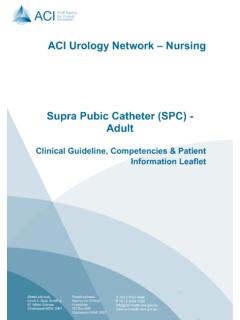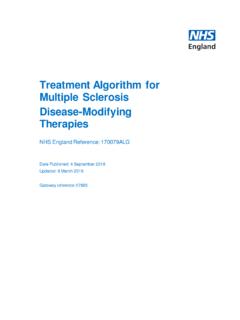Transcription of Model of care for the use of anti-SARS-CoV-2 monoclonal ...
1 The National COVID-19 Clinical Evidence Taskforce (NCCET) Guidelines specify recommendations for the use of anti-SARS-CoV-2 monoclonal antibodies and antivirals in adults, and children and adolescents (aged over 12 years) in Australia based on available This guidance is based on these recommendations and the evidence checks undertaken by the NSW Critical Intelligence Unit (CIU). available evidence was considered by an expert group of NSW clinicians to inform the development of this guidance. Emerging medications are also being monitored by the CIU and will be included in this document, as required.
2 This document should be read in conjunction with drug guidance developed by the Clinical Excellence Commission (CEC).4A range of anti-SARS-CoV-2 monoclonal antibodies and antiviral medications have been provisionally approved by the Therapeutic Goods medications are for prophylaxis or for the treatment of patients in the early phase of infection with COVID-19 who are at risk of progression to severe disease. This guidance outlines the use of these medications in NSW. Updates 12 August 2022 Minor updates to this version only to reflect changes in access can be treated?
3 Clinical criteria and risk factors The medications covered in this Model of care are: casirivimab and imdevimab molnupiravir nirmatrelvir plus ritonavir remdesivir sotrovimab tixagevimab and : (ACI) 220599 | TRIM: ACI/D21/2110 | ACI-6048 [8/22] Guidance for the use of anti-SARS-CoV-2 monoclonal antibodies and antiviral agents as prophylaxis or to prevent severe infection from COVID-19 in NSWAUGUST 2022 Guidance for use of anti-SARS-CoV-2 monoclonal antibodies and antiviral agents August 2022 NSW Agency for Clinical Innovation 2 does not recommend a minimum time frame to defer vaccination due to monoclonal antibody medicine or antiviral administration.
4 However, it is recommended to follow guidance to defer vaccination for 3 months following Adverse eventsAll adverse events should be reported to the TGA at NSW Health staff must also report adverse events via the local incident management system (IIMS+).Criteria for prescription in NSW The criteria for prescribing monoclonal antibody treatments and antiviral medicines in NSW align to the NCCET recommendations (for TGA-approved indications) or PBS criteria, with some additions, as summarised in Table Aboriginal or Torres Strait Islander status appears as a risk factor, an age of 30 years or older should be possible, prescribing of the oral antivirals (molnupiravir and nirmatrelvir plus ritonavir) must occur via the Pharmaceutical Benefits Scheme.
5 However, in the following circumstances dispensing by a NSW Health Pharmacy Department may continue to occur: where the patient is an inpatient in an NSW health facility for patients presenting to emergency departments for patients prescribed tixagevimab plus cilgavimab for pre-exposure prophylaxis by their community-based GP or medical specialist (only if the patient does not have an existing link to a NSW Health facility or private hospital) for virtual care or COVID Care in the Community patients for patients identified by general practitioners or community-based medical specialists who meet the criteria outlined by the NCCET but are ineligible for PBS supply.
6 Evidence indicates that there is reduced efficacy of sotrovimab and casirivimab plus imdevimab against Omicron (including all subvariants).2 , 3 , 7, 8 To support ongoing use of this document all medications within scope have been retained. The drug guidelines for these medications are available on the CEC , these drugs are for use early in the course of the disease before significant symptoms or severe disease have developed, and within a window of 5 to 7 days from the onset of infection (preferably as early as possible). These agents prevent the replication and spread of the virus and are likely to work best soon after infection has occurred.
7 This limits the spread of the virus beyond the respiratory tract and before a severe systemic immune response has been initiated. The guidance outlined in this document is for the use of a single medication for this : Tixagevimab plus cilgavimab can be used for pre-exposure prophylaxis and casirivimab plus imdevimab for post-exposure only some of these medications are approved for children and adolescents aged 12 to 17 years who weigh > specific patient groups are expected to benefit from, and hence be eligible for, these medicines.
8 They are not an alternative to COVID-19 vaccination, which remains the best way to protect vulnerable populations from severe outcomes of COVID-19 the indications for these medications are similar, they are not identical. As such, NCCET eligibility criteria recommendations and individual drug guidelines should be reviewed, particularly with respect to the COVID-19 variants likely to be for all medications are outlined in Table use of these medications is not encouraged in patients who are up to date with their COVID-19 vaccinations, unless a suboptimal response is predicted ( severe immunosuppression from a medical condition or medication)
9 Or if the patient has multiple co-morbidities that increase their risk of disease The Australian Technical Advisory Group on Immunisation (ATAGI) specifies the interval for vaccination. Vaccination can take up to 14 days to be for use of anti-SARS-CoV-2 monoclonal antibodies and antiviral agents August 2022 NSW Agency for Clinical Innovation 3 , clinicians and services should note: the information provided regarding efficacy against current variants the most current decision advice in Figure 1 the considerations outlined in Table 1 updated recommendations from the NCCET has also developed a risk classification tool for adults with mild COVID-19 that assists clinicians to select the medication likely to be the most of available medications for off-label indications or in combinationThe NCCET has made.
10 A conditional recommendation regarding the use of tixagevimab plus cilgavimab as treatment for non-hospitalised patients with mild to moderate disease10 a consensus recommendation regarding the use of nirmatrelvir plus ritonavir in children and adolescents aged 12 years and over and weighing at least 40 kg who do not require oxygen and who are at high risk of medicines are not currently approved by the TGA for these indications and therefore, use is is no supporting evidence for combination therapy (antivirals plus monoclonal antibodies).
